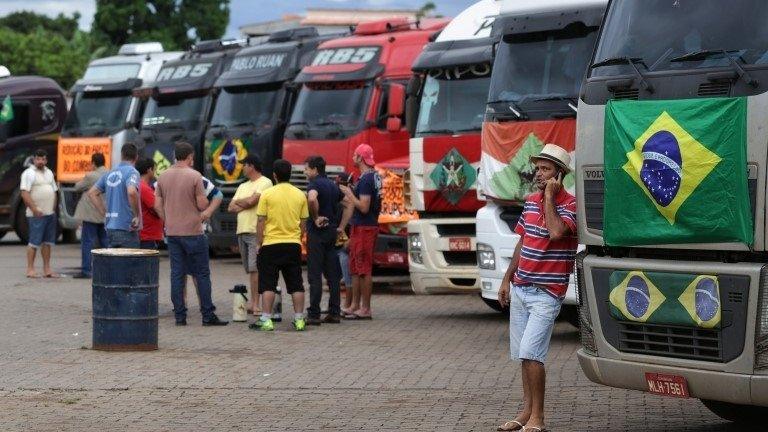Carnival cancelled in Brazilian cities' budget cuts
- Published

In a large warehouse in the beach town of Cabo Frio, southeast Brazil, dozens of colourful carnival costumes and a few giant floats are lying about gathering dust.
With Carnival approaching, this place should be bustling with seamstresses, artisans and samba musicians doing last-minute work to put on a beautiful show at the city's annual parade competition.
But this year, the workshop is empty, because Cabo Frio has cancelled the parade.
As Brazil faces its worst recession in two decades, some small and medium cities across the country have decided not to spend any money on celebrations.
In addition, amidst the outbreak of diseases like dengue, chikungunya and Zika, two cities in the neighbouring Sao Paulo state have cancelled their celebrations - to concentrate their budgets on tackling the mosquitoes responsible for spreading the Zika virus.
Good investment
Nineteen-year-old Rodrigo Moura is a Carnival artist in Cabo Frio who designs costumes and floats.
His samba school - as each competing group is known - won the city's last two Carnival competitions.
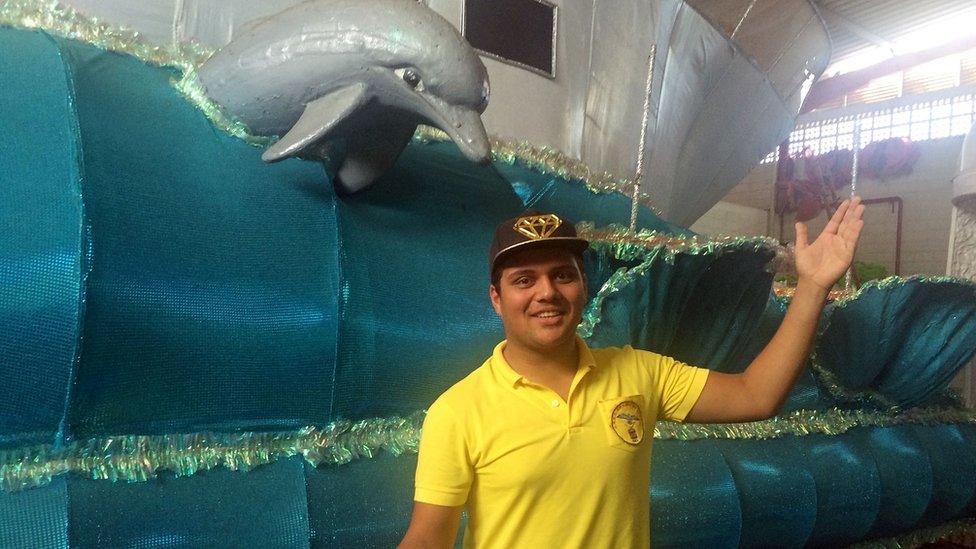
"Last year I had 40 people working for me here, seven of them just on the costumes," says artist Rodrigo Moura
"In the parade, we had about 800 people dancing for us", he says in the empty workshop.
Moura had already designed all of the costumes for this year's parade, but now he does not know when Carnival will be held again.
Cabo Frio touts its Carnival as one of the best - second only to Rio de Janeiro's world renowned spectacle, where millions of reais are spent.
Each of the 12 local samba schools received on average 70,000 reais (£12,000; $17,000) from the city's council to put on their parade last year.
Authorities and the community see this as a good investment of public money, as Carnival brings communities together and brings in tourists.
Not in the mood
But this year, the city is not in the mood for party.
A sharp fall in tax revenues has left the Cabo Frio cash-strapped. The council has delayed payments of salaries for many of its public servants.
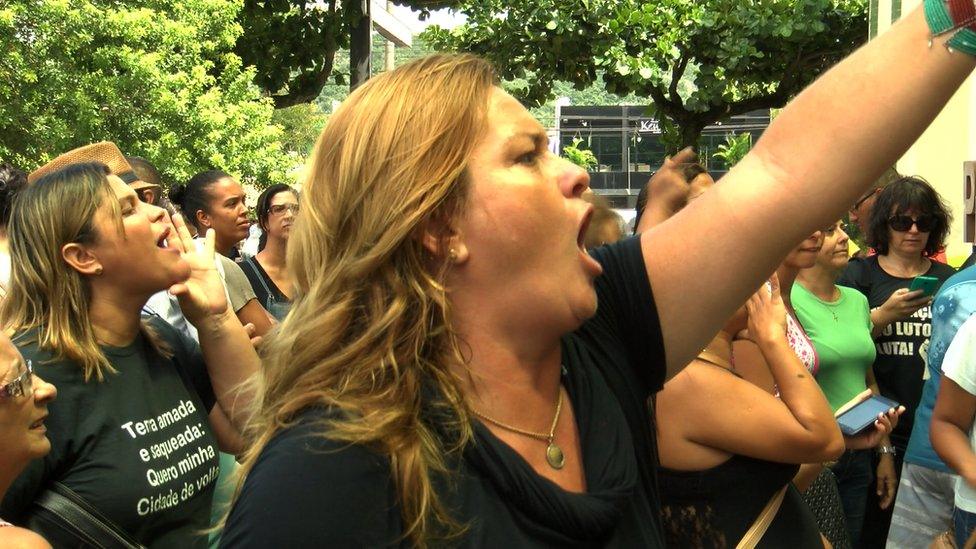
Teachers, nurses, street sweepers and gravediggers have gone on strike in Cabo Frio
Jose Carlos dos Santos, a civil servant who works for a local school, hasn't received his salary for two months.
The city owes him 2,000 reais (£345; $490) and he is falling behind on credit card payments and utility bills.
To make ends meet, Santos is working 10-hour shifts selling ice cream in the local beaches.
He says he is depressed and worried about the future.
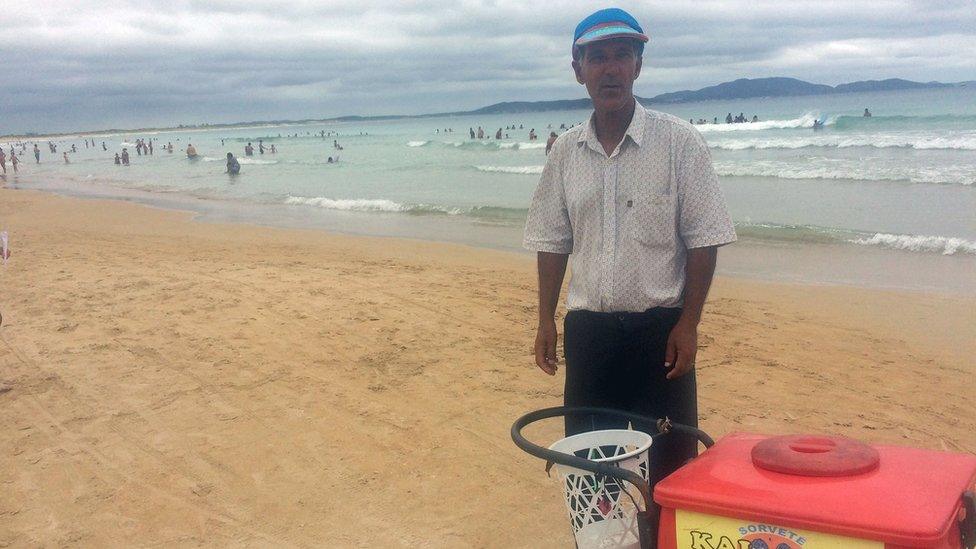
Civil servant Jose Carlos dos Santos is selling ice creams on the beach to earn extra cash
"I can only do this temporary job in the summer. In the winter we don't get as many tourists in the beaches, and I don't know whether I can find another job then."
Oil prices
In front of the mayor's office, teachers have camped out, staging daily protests and demanding to be paid.
Inside, mayor Alair Correa is crunching numbers in front of a pile of documents.
But they don't add up.
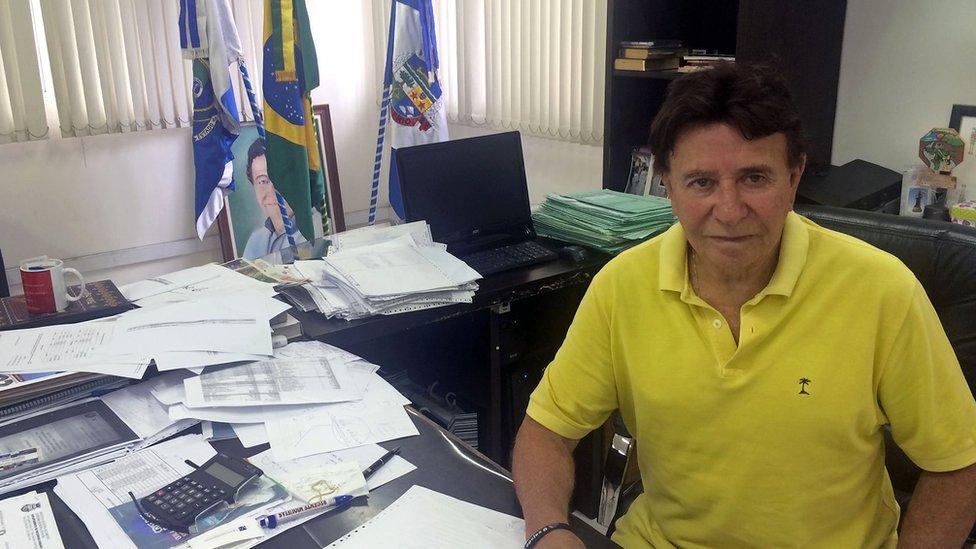
Mayor Alair Correa says his city's income has been cut in half
"We used to have 60 million reais (£10m; $14m) per month in our budget, and suddenly we are down to half of that. But the services we offer are still based on that 60 million reais budget", he tells me.
Cabo Frio has been particularly hit by low international oil prices.
It sits off one of the richest places for oil drilling in the coast of Brazil, and since the 1980s the city has been collecting royalties from the industry.
Public coffers are running dry now that global oil prices have plummeted.
Ambulance or party?
Many Carnival parties depend on public money, but cities, states and the federal government are undergoing austerity cuts.
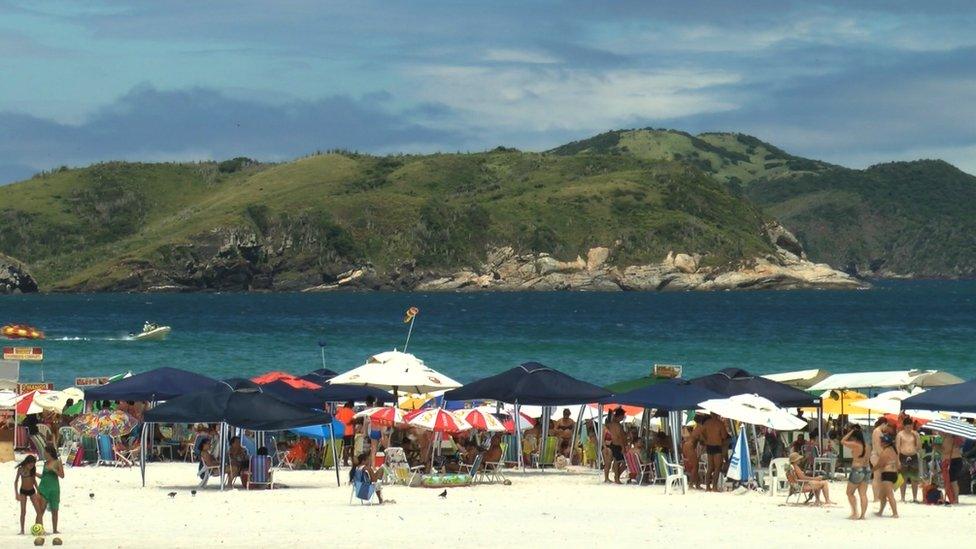
Brazil is going through its worst recession in over two decades
Over 40 small and medium-sized towns have cancelled their celebrations, many of them due to falling tax revenues caused by the economic slowdown.
In Porto Ferreira, in Sao Paulo state, the local assembly voted to cancel Carnival and use the money to buy a new ambulance.
The historic city of Ouro Preto, which holds a traditional Carnival in Minas Gerais state, has cancelled its parade and is spending just 10% of what it did last year to host a modest street party.
Poor prospects
A recent IMF report forecast that by the end of 2016 Brazil's economy will have contracted almost 8% in two years. It forecasts that a recovery will only start in 2018.
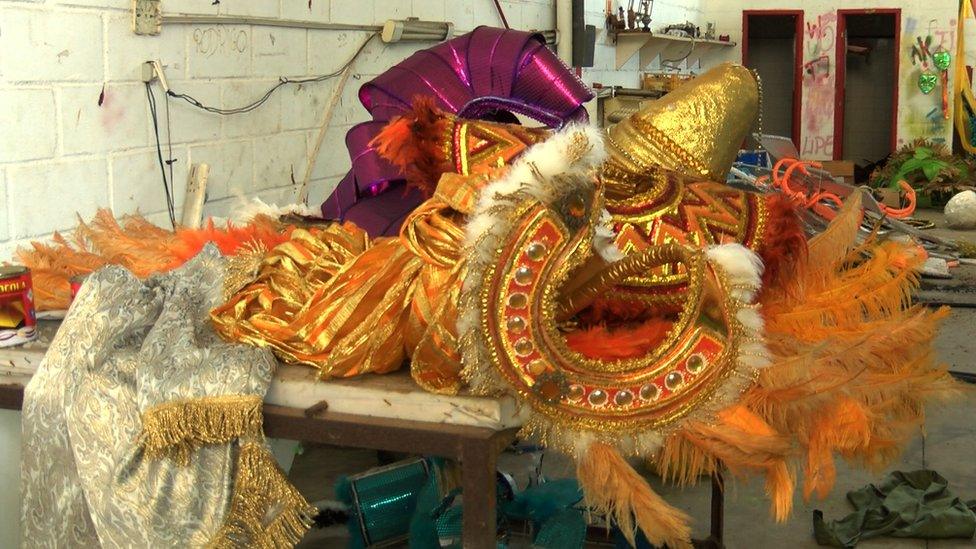
Prospects for the coming years are not good, says Cabo Frio's mayor, Alair Correa
Even those involved with the celebrations understand that there are more urgent things for local governments to spend on.
"I accept that it is hard for the city to pay for Carnival. Of course we think about civil servants who haven't received their salaries and the population in need of services", says Carnival artist Rodrigo Moura.
"But we also have to think about our own business. What happens to those of us who make a living out of Carnival?"
Cabo Frio's mayor, Alair Correa, says prospects for the coming years are not good.
"It will take us maybe four years to go back to having a carnival like the one we used to have - only when we go through this crisis and pay our bills."
- Published4 February 2016
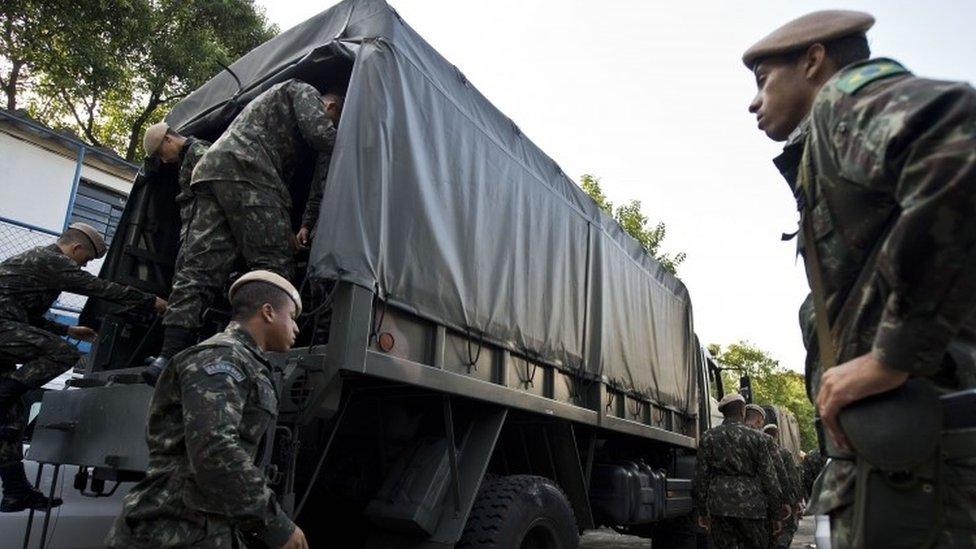
- Published31 August 2016
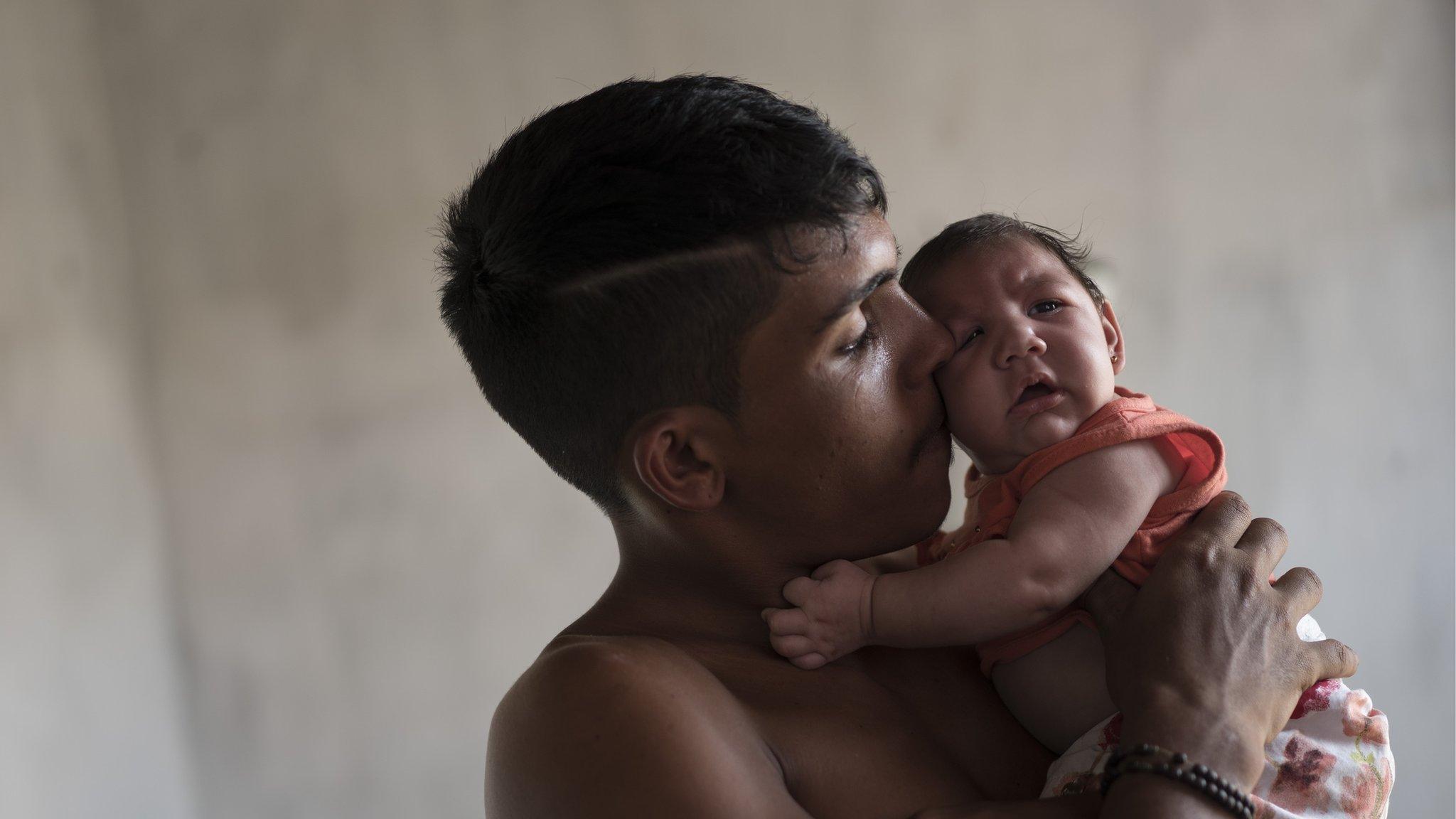
- Published29 December 2015
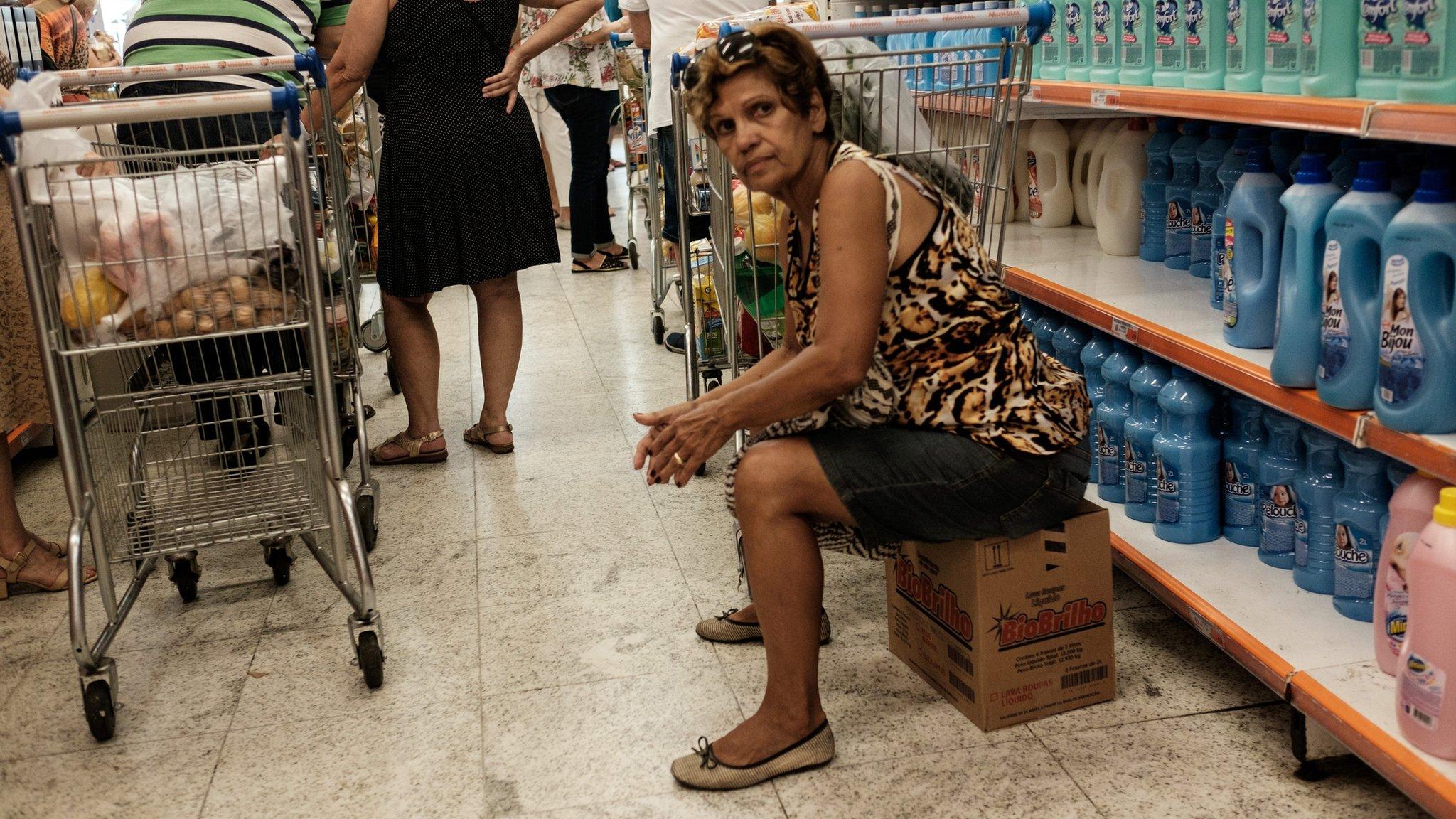
- Published1 December 2015
